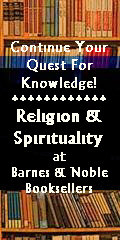
May You Be Blessed by the God of Your Heart 
|
The Coming of Christianity to BritainBy the Venerable Bede, A.D. 731In the year of our Lord's Incarnation 156, Marcus Antonius Verus, fourteenth from Augustus, became Emperor jointly with his brother Aurelius Commodus. During their reign, and while the holy Eleutherus ruled the Roman Church, Lucius, a British king, sent him a letter, asking to be made a Christian by his direction. This pious request was quickly granted, and the Britons received the Faith and held it peacefully in all its purity and fullness until the time of the Emperor Diocletian.... In the year of our Lord 286, Diocletian, a nominee of the army, became thirty-third in the succession of Augustus. He ruled twenty years, and Maximian, known as Herculius, as his co-Emperor....Diocletian in the East and Herculius in the West ordered all churches to be destroyed and all Christians to be hunted out and killed. This was the tenth persecution since Nero, and was more protracted and horrible than all that had preceded it. It was carried out without any respite for ten years, with the burning of churches, the outlawing of innocent people, and the slaughter of martyrs. But at length the glory of these martyrs' devoted loyalty to God was to light even Britain. When this storm of persecution came to an end, faithful Christians, who during the time of danger had taken refuge in woods, deserted places, and hidden caves, came into the open, and rebuilt ruined churches. Shrines of the martyrs were founded and completed and openly displayed everywhere as tokens of victory. The festivals of the Church were observed, and its rites performed reverently and sincerely.
Bede, (Leo Sherley-Price, translator), A History of
the English Church and People. Baltimore: Penguin
Books, 1968, pp. 38, 42-44, 48. Return to The Geography of Christianity |